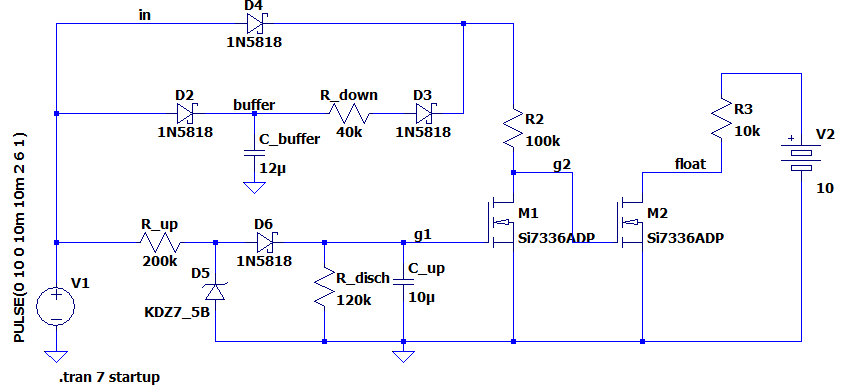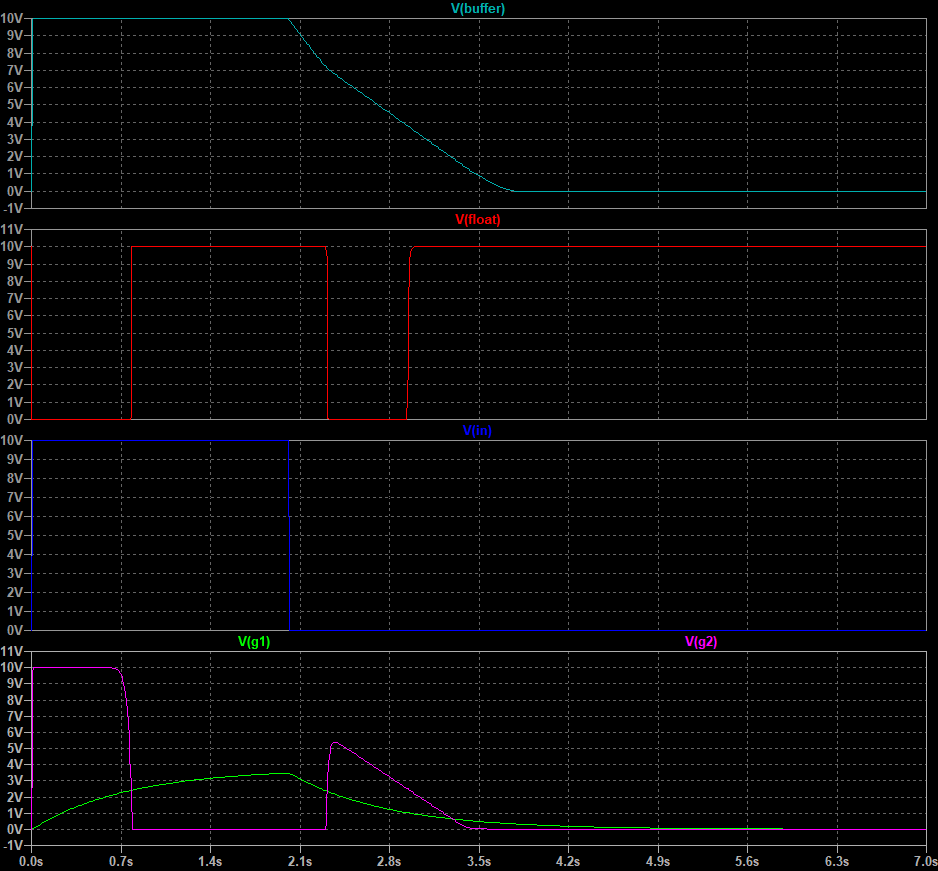I need some help designing a circuit to pull a floating pin to ground for approx 500ms when the circuit is first powered on, then pulling it to ground again for another 500ms when powered is lost. The floating pin is the trigger for an RF transmitter circuit, pulling it to ground will transmit its code - I need a pulse when power is turned on and pulse when power is turned off. I've got a 5v power supply. I haven't done any electrical engineering work for over 20 years..
It seems from other related posts that a tried and trusted 555 timer might be the simplest solution, I can clearly see how I can get a slight delay, then a 500ms pull to ground using a couple of RC networks and transistor on the 555 output pin when turned on, but can I use the same 555 and a capacitor to pulse when the power is lost somehow? I don't mind if I have to have two 555 timers - or if there is a simpler or easier solution?


